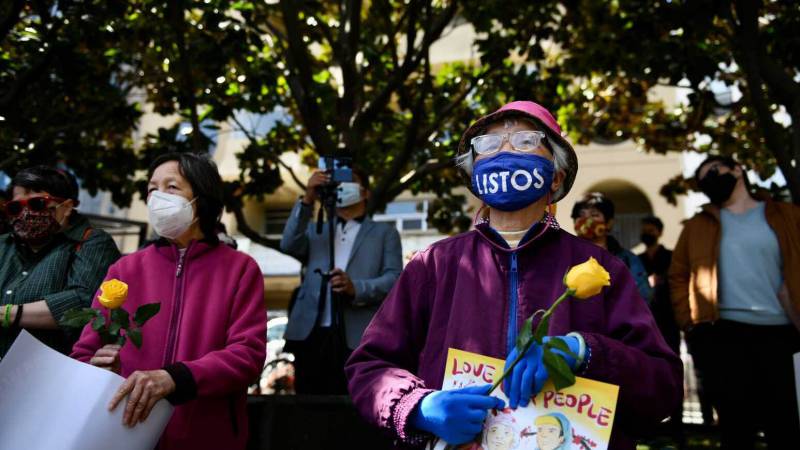This is the latest safety measure from San Francisco aiming to protect the AAPI community. Last week, in a response to the shooting deaths of eight in Atlanta, including six Asian women, Breed announced the San Francisco Police Department would ramp up police patrols in neighborhoods with higher numbers of Asian residents, visitors and businesses.
“Any type of violent crime is horrific, but when people appear to be being targeted because of their race or ethnicity that is unacceptable,” San Francisco Police Department Chief Bill Scott said at a press conference last week.
Still, anti-AAPI attacks have continued in the Bay Area more broadly and in San Francisco. On Monday, a woman was attacked, robbed and dragged by a car at the intersection of Polk and Bush streets in San Francisco’s Nob Hill. A video of the incident has been shared widely on social media. According to a report released by Stop AAPI Hate, a project based out of San Francisco State University that asks members of AAPI communities to self-report acts of hate and discrimination, there have been more than 700 anti-Asian hate incidents reported in the Bay Area between March 2020 and February 2021. Stop AAPI Hate reported at least 3,795 incidents of anti-Asian hate across the nation in the same time frame.
One group decided to take matters into their own hands. Forrest Liu created the Chinatown Safety Patrol after he watched a video of an attack on Vicha Ratanapakdee, an 84-year-old Thai man who died in January after the attack.
Liu said he’s seen the increased police presence while on patrol with volunteers in Chinatown. He appreciates the officers he’s interacted with because some of them are from the community and speak Chinese.
